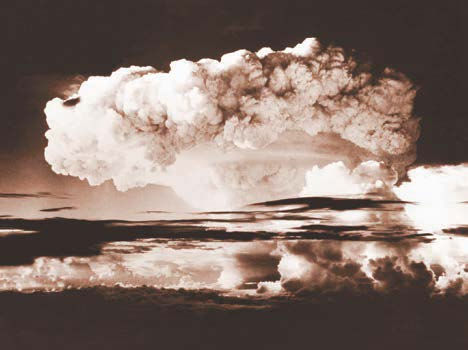St. Katharine Drexel Is Canonized: October 1, 2000
- Catholic Textbook Project

- Sep 28, 2023
- 3 min read
This text comes from our book, The American Venture.
“Why not become a missionary yourself, my child?” With these words, Pope Leo XIII challenged an ardent, young, American woman, Katharine Drexel. The year was 1887, and Drexel had been granted a private audience with the pope. She had come to Rome to tell him of the need for religious, men and women, to staff schools she had founded for the Indians in America. With keen insight, Pope Leo saw that what the young, zealous woman sought was what she herself was called upon to provide: self-abandonment to the will of God.
Katharine Anne Drexel had grown up in an unusual family. Her father, Francis Anthony Drexel, was a wealthy man who saw his wealth as a trust given him by God to aid the poor and unfortunate. With his wife (and Katharine’s stepmother), Emma Bouvier Drexel, Francis Anthony liberally distributed the family’s money to charitable organizations. Nor did the Drexels abandon personal involvement with the poor. Every week, Emma Bouvier welcomed poor men and women to their home, where she would distribute food and clothing as well as monetary assistance for rent. The Drexels even went out of their way to seek out the women who out of shame or pride would not approach their house for assistance.

This commitment to charity Francis Anthony passed down to his daughters, Katharine, her sister, and half-sister. As a young woman, Katharine learned practical charity, not only from her parents’ example, but through the care she gave to her stepmother, who was dying of cancer. In 1884, following his wife’s death, Francis Anthony took his daughters on a trip to the Rocky Mountain states where they witnessed firsthand the poverty and destitution on the Indian reservations.
Following Francis Anthony’s death in 1885, his daughters used the wealth they inherited from him for charity. Katharine used her personal inheritance in support of Indian schools on reservations. This is how she found herself in Rome, kneeling before Pope Leo XIII, and heard his call to dedicate herself to the very work for which she had sought his aid.
The seed of the pope’s words fell on fertile ground. In 1889, Katharine Anne took vows as a religious sister and founded a congregation of religious, the Blessed Sacrament Sisters for Indians and Colored People. As the name suggests, these sisters would engage in missionary work among Indians and poor blacks. Though beginning with only a handful of members, the congregation, today called Sisters of the Blessed Sacrament, grew to 112 sisters by the second decade of the 20th century.

In 1894, the Blessed Sacrament Sisters, supported by Mother Katharine’s inheritance as well as other charitable donations, opened their first project: St. Catherine’s boarding and industrial school for the Pueblo Indians, in Santa Fe, New Mexico. Five years later, they established the Institute of St. Francis de Sales in Rock Castle, Virginia, a boarding school where black girls could receive an education in religion for their eternal welfare, as well as practical skills to improve their material well-being in this world.
Other similar institutions followed in short order: in 1902, St. Michael’s Mission, a boarding and industrial school for the Navajo in Arizona; three years later, the Academy of the Immaculate Mother in Nashville, Tennessee, where black girls could learn the skills for managing a household as well as dressmaking; and in 1915, a school for blacks in New Orleans that, ten years later, became a university named Xavier, after the Jesuit missionary, St. Francis Xavier. In 1906, the sisters began teaching Indians at a government school in Carlisle, Pennsylvania, as well as black children in a day school they founded in the same city.
Throughout Katharine Drexel’s long life of 96 years (she died in 1955), the Sisters of the Blessed Sacrament continued to found and staff similar schools and institutions. In 2000, Mother Katharine’s generous response to one pope’s call was honored by another pope, John Paul II, when he proclaimed her a saint of the Catholic Church. We remember her today as the patron saint of racial justice and philanthropists.


